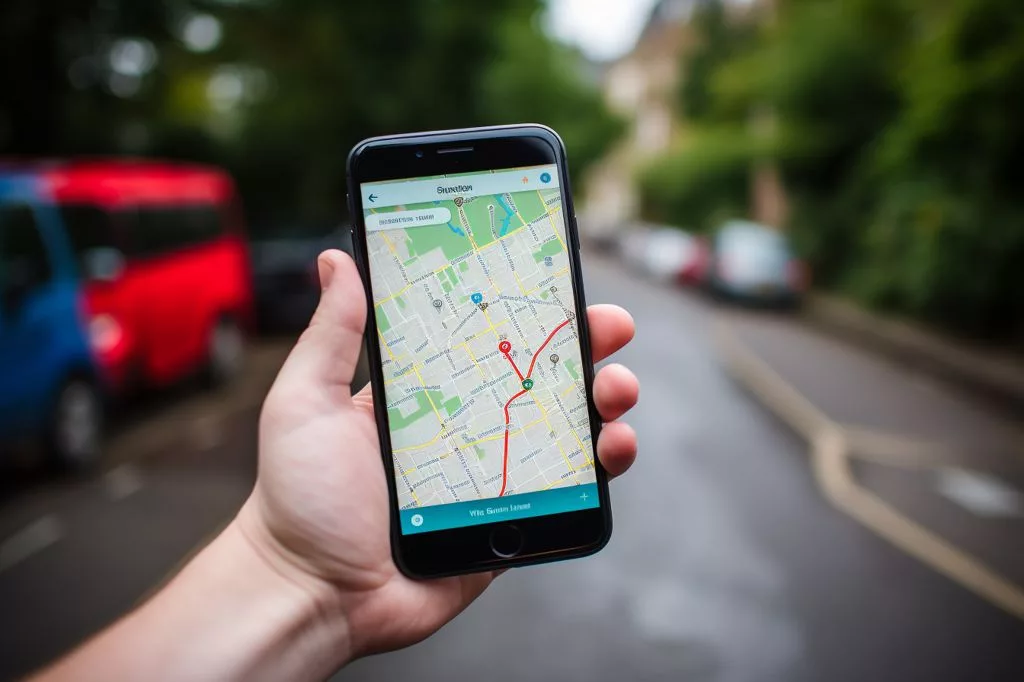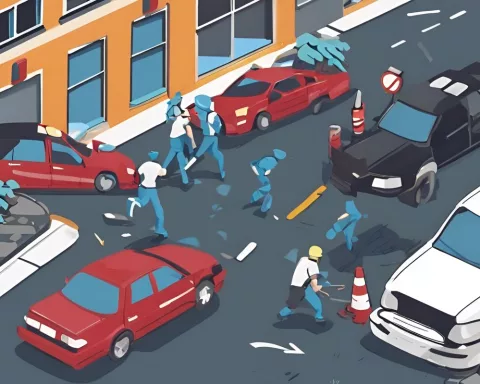Uber has responded to e-hailing drivers’ concerns during an ongoing strike by introducing Trip Radar to reduce wait times, implementing safety measures such as an in-app emergency button and audio recording, and increasing fares. The company is also collaborating with the Gauteng Government to create over 2,000 earning opportunities and R500 million in gross value added to the Gauteng economy within the next three years. Uber is committed to ongoing dialogue with stakeholders to find solutions that benefit all parties involved.
What initiatives has Uber taken to address e-hailing drivers’ concerns during the ongoing strike?
Uber has addressed drivers’ concerns regarding better pay, improved safety measures, and greater transparency in policies. They plan to collaborate with the Gauteng Government to create over 2,000 earning opportunities and R500 million in gross value added to the Gauteng economy within the next three years. Uber has introduced Trip Radar to reduce wait times for both riders and drivers, and engaged with drivers through regular roundtables. The company has implemented safety features like an in-app emergency button and audio recording, and fare increases to alleviate some of the drivers’ grievances.
Supporting the Township Economy Growth
During the ongoing strike led by e-hailing drivers from Uber, Bolt, and InDrive in Gauteng, Uber has officially addressed their list of grievances. As previously highlighted, the drivers demand better pay, improved safety measures, and greater transparency in the company’s policies. In this article, we examine Uber’s stance on these issues and their initiatives to address the drivers’ concerns.
According to The South African, Uber addressed the drivers’ concern regarding the company’s investment in growing the township economy. Demonstrating their commitment, Uber announced plans to collaborate with the Gauteng Government to tackle unemployment in South Africa by digitizing township businesses. This investment aims to create over 2,000 earning opportunities and R500 million in gross value added to the Gauteng economy within the next three years.
New Technology Enhancements for a Better Experience
Protesting drivers also raised concerns about recent upgrades to Uber’s platform. In response, the company introduced Trip Radar, a feature aimed at reducing wait times for both riders and drivers. This technology enables drivers to show interest in nearby available trips, in addition to receiving individual trip offers. Already in use in over 60 countries by more than 800,000 earners daily, Trip Radar signifies Uber’s dedication to benefiting both riders and drivers.
Fostering Open Communication with Drivers
Uber emphasized the significance of maintaining open dialogue with its drivers by engaging with them through regular roundtables. These meetings serve as a platform for drivers to give feedback on current and future features, as well as express their concerns on specific subjects. By encouraging open communication, Uber seeks to create a more inclusive environment for its drivers and ensure their needs are addressed.
Safety Measures and Fair Adjustments
To tackle drivers’ safety concerns, Uber has implemented several industry-leading safety features, such as an in-app emergency button and audio recording. Furthermore, the company has acknowledged the need for more robust rider screening, especially for cash riders. Consequently, Uber initiated a pilot identification document verification process for new cash riders.
In light of record-high operating costs affecting platform users, Uber introduced fare increases to provide relief to drivers struggling with the financial impact of the current economic climate.
Commitment to Ongoing Dialogue
In conclusion, Uber reaffirmed its dedication to continuous communication with all relevant stakeholders, including drivers, riders, and government officials. This commitment is crucial for building trust within the community and collaborating to find solutions that benefit all parties involved.
As the e-hailing drivers’ strike continues, Uber’s response signifies a willingness to address their concerns and work towards creating a more favorable working environment. With the introduction of new technology, enhanced safety measures, and fare adjustments, the company aims to alleviate some of the drivers’ grievances and set the foundation for a more sustainable future for the e-hailing industry.
Ultimately, the success of these initiatives will rely on both parties’ willingness to maintain open dialogue and collaborate to create a better experience for drivers and riders alike. The ongoing strike serves as a reminder of the challenges faced by e-hailing platforms, but also offers an opportunity for growth and improvement within the industry.
What were the drivers’ main concerns during the ongoing strike?
The drivers’ main concerns during the ongoing strike included better pay, improved safety measures, and greater transparency in the company’s policies.
How is Uber collaborating with the Gauteng Government to create earning opportunities and value added to the economy?
Uber plans to collaborate with the Gauteng Government to create over 2,000 earning opportunities and R500 million in gross value added to the Gauteng economy within the next three years by digitizing township businesses.
What is Trip Radar and how does it benefit drivers and riders?
Trip Radar is a feature introduced by Uber to reduce wait times for both riders and drivers. The technology enables drivers to show interest in nearby available trips, in addition to receiving individual trip offers. It benefits both riders and drivers by allowing for quicker matching and increased efficiency.
How does Uber maintain open communication with its drivers?
Uber maintains open communication with its drivers through regular roundtables, which serve as a platform for drivers to give feedback on current and future features, as well as express their concerns on specific subjects. By encouraging open communication, Uber seeks to create a more inclusive environment for its drivers and ensure their needs are addressed.
What safety measures has Uber implemented for drivers?
Uber has implemented several industry-leading safety features, including an in-app emergency button and audio recording. The company has also initiated a pilot identification document verification process for new cash riders to improve rider screening.
Has Uber made any fare adjustments?
Yes, Uber has introduced fare increases to provide relief to drivers struggling with the financial impact of the current economic climate.
Why is ongoing dialogue important for Uber?
Ongoing dialogue is important for Uber to build trust within the community and collaborate to find solutions that benefit all parties involved. This commitment is crucial for creating a more favorable working environment and ensuring the needs of the drivers and riders are addressed.
What does Uber’s response to the ongoing strike signify?
Uber’s response to the ongoing strike signifies a willingness to address drivers’ concerns and work towards creating a more favorable working environment. The company’s initiatives, such as new technology, enhanced safety measures, and fare adjustments, aim to alleviate some of the drivers’ grievances and set the foundation for a more sustainable future for the e-hailing industry.












